Outstanding Graduates 2022
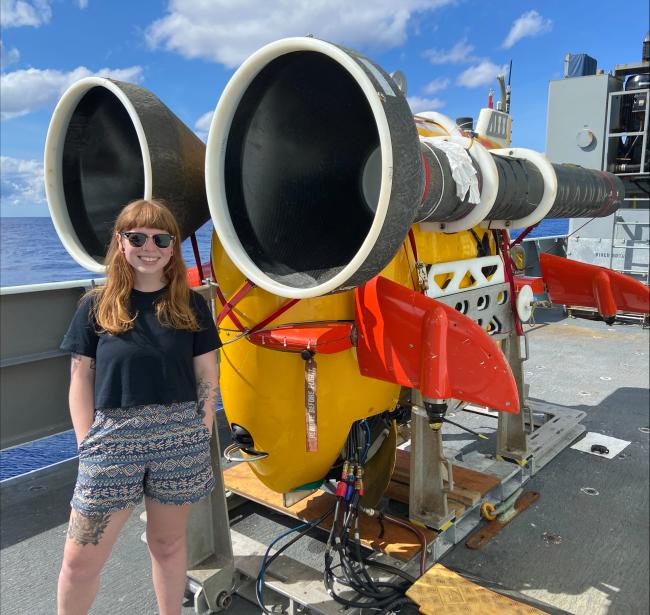
Tessa Beaver
Master of Science, Biology - MESP
Tessa Beaver, of Dupont, WA, first became interested in marine biology at Pierce College where she graduated with a 4.0 GPA with an AS in Biology in 2017. That fall, she began at WWU as a biology major, where she made lots of connections with faculty and researchers and began her foray into research as an undergraduate. After efficiently earning her BS in biology, Tessa began her graduate degree in biology at WWU in 2019. As a graduate student, Tessa taught introductory laboratory courses in cellular and molecular biology, stepping up her leadership role in these courses amid the COVID-19 pandemic. During her graduate career, Tessa also participated in four research cruises, during which she led teams of graduate and undergraduate students in collection, sorting, imaging, and sample preservation of planktonic larvae throughout the water column in the Western Atlantic, Gulf of Mexico, and Southwestern Pacific. Her thesis, titled “Microbial community dynamics during early life-history transitions in the deep-sea chemosymbiotic mussel Gigantidas childressi,” made observations that challenge current assumptions about how symbiotic relationships with bacteria develop and persist during early development in this species. This work is currently in preparation for publication and was also awarded the outstanding graduate research award from the Biology Department. In all, Tessa is passionate about using molecular methods to answer ecological questions in marine systems, specifically in deep-sea and symbiotic communities. Tessa hopes to continue this line of research in the future.
Brianna Berkson
Master of Business Administration
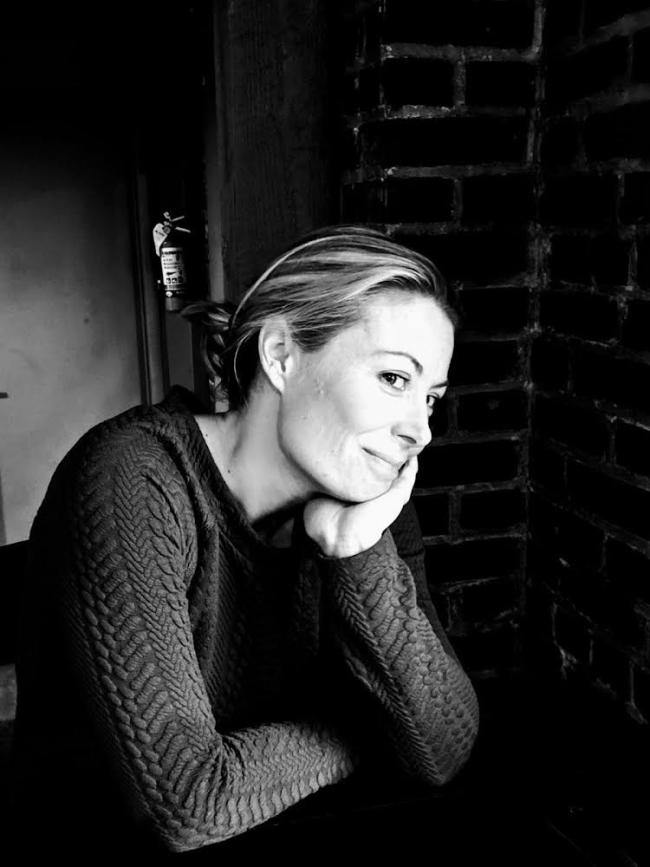
Sara Billington
Master of Arts, Rehabilitation Counseling
Sara Billington completed a BA in Political Science and an MA in Rehabilitation Counseling from Western Washington University. Over the four years she was in the RC program, faculty observed the effort and excellence Sara put into each of her courses. She was viewed as a compassionate and patient member of her cohort. Throughout her program, Sara faced many personal adversities with grace and tenacity. The RC faculty take this opportunity to acknowledge Sara’s diligence in her studies and her commitment to the field of rehabilitation counseling. Sara has a strong passion for working with and advocating for individuals with disabilities. She's currently working at the Center for Continuing Education in Rehabilitation at the University of Washington.
Holly Blystone
Master of Business Administration
Letys Ellefson Bracho
Master of Education, Language and Literacy
Letys is a bilingual teacher who teaches both English and Spanish. Her scholarship centered around how to elevate students' voices in both languages. In addition to improving her pedagogical practices, she also was a leader in using her voice to advocate for students around literacy practices. Letys secured funding to get students access to a virtual library in order to encourage them to keep reading and capitalized on the opportunity to engage parents as home coaches.
Letys is an innovator and a social justice advocate for her students. She recognized the need to incorporate coding with her 3rd graders as an issue of social justice. During remote learning, Letys utilized Wonder Workshop to engage her students in coding remotely and as motivation to show up to online class. Not only is Letys a creative, caring, reflective teacher, but she also brings passion and humor to her work, which makes learning from and working with her joyous.
Michael (Gus) Brooks
Master of Science, Experimental Psychology
The Effect of Economic Scarcity on Racial Perceptions
Gus Brooks has been dedicated to psychology research since his time as an undergraduate at Western Washington University, when he was a member of multiple research labs. His master’s thesis examines the effect of scarcity on racial categorization and seeks to identify the mechanisms that result in increased discrimination during times of economic hardship.
During his time in the master’s program, Gus was incredibly dedicated to his research and went above and beyond expectations in his thesis pursuits. Gus was awarded two sources of funding to conduct his thesis research: a Graduate Student Grant from Research and Sponsored Programs and a Student Research Project grant from the Center for Cross-Cultural Research. He presented his thesis at the Society for Personality and Social Psychology annual conference in 2022. In addition to his multi-study thesis project, Gus also pursued research projects in collaboration with other labs and co-authored a paper with other graduate students.
Gus is passionate about issues of social justice and equity, and his research seeks to address these issues. He plans to pursue a PhD and will surely contribute substantially to the field of social psychology.
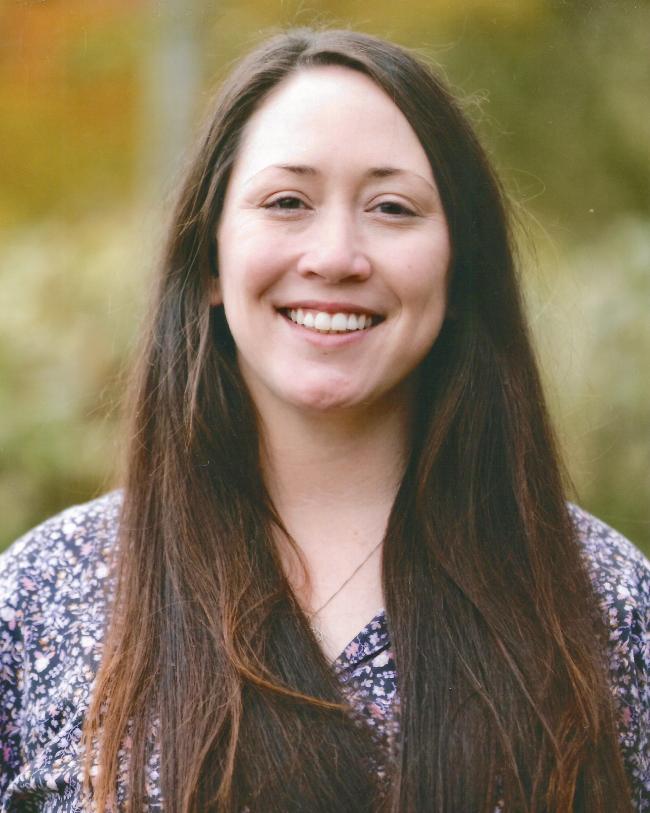
Ashlee Carstens
Master of Education, School Counseling
John Crockett
Master of Science, Chemistry
Enhancing Plasmonic Nanomaterials: Colorimetric Sensing and SERS
Jessica Canul Diaz
Master of Education, Language and Literacy
Jessica Canul Diaz, a 3rd-grade bilingual teacher, has a vision for integrating technology into Guided Language Acquisition Design (GLAD) strategies to teach and support multilingual learners. GLAD strategies are designed to promote language and cultural skills as well as overall academic achievement.
Jessica’s passion for language learning combined with her skill and enthusiasm for meaningful technology integration as well as the willingness and discipline to work hard, has led her to create powerful, fun, and engaging lessons. She capitalizes on tools like Jamboard, Book Creator, Seesaw, Padlet, and Gify to create cognitive content dictionaries, observation and inquiry charts, big books and more.
During remote learning and while she worked toward her Digital and Media Literacy certification, she created “Club Creadores Digitales” (Digital Creators Club) in order to motivate students to complete assignments, particularly in the target language of instruction, in this case Spanish. As a Seesaw Ambassador, Book Creator Certified Author, GLAD certified teacher, and a GLAD lead for her building, Jessica is transforming the education of her students, who will be multilingual and multi-literate, but also prepared with 21st century digital skills.
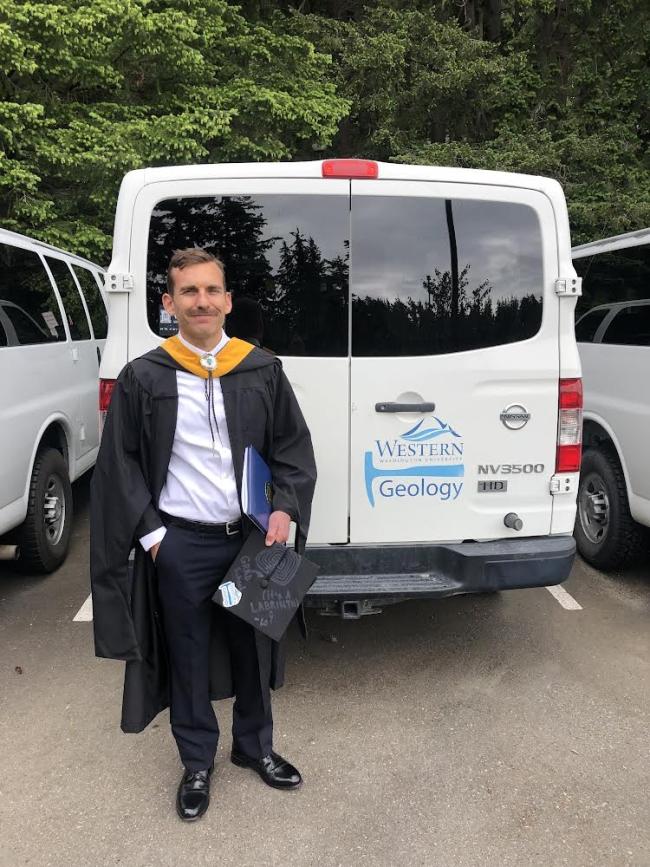
Ed Fordham
Master of Science, Geology
Ed Fordham came to WWU with a BS in Environmental Science from the University of New Mexico. His MS research explored the geomorphic drivers, timing, and magnitude of debris flows in the Suiattle River in the North Cascades. This project spanned field, remote sensing, and data compilation efforts. During his time at WWU, Ed was honored with a number of awards, most notably the Geological Society of America 2020 Howard Award for best MS student proposal in Quaternary Geology and Geomorphology. In addition to his academic pursuits, Ed was involved in the WWU Unlearning Racism in the Geosciences (URGE) pod, where he helped lead the unit focused on making field work more inclusive.
Adriana Garcia-Gonzalez
Master of Arts, English
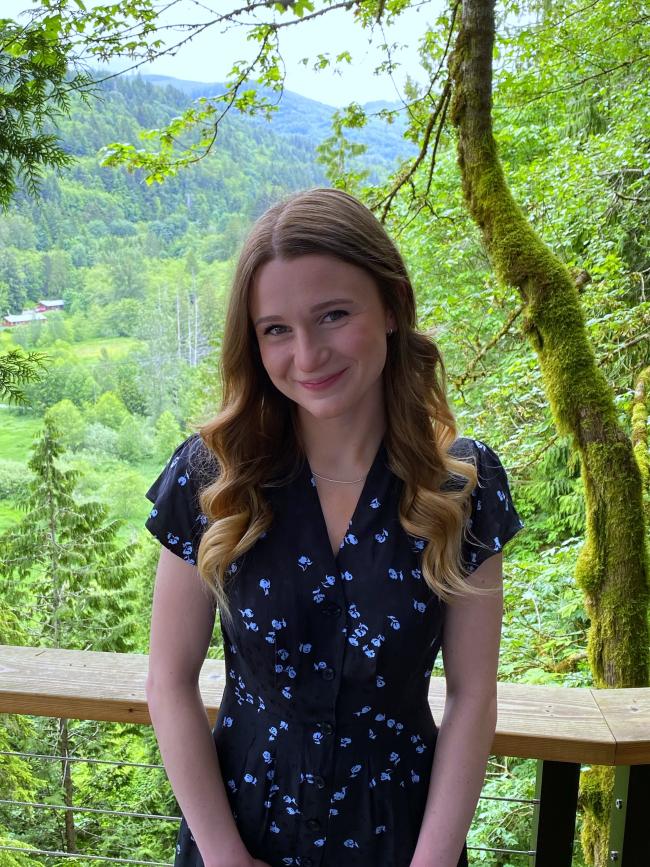
Kyllie Gliessman
Master in Teaching, Secondary Education
Kyllie will be teaching 6th grade math and 7th grade science at Northshore Middle School in Bothell, WA next year.
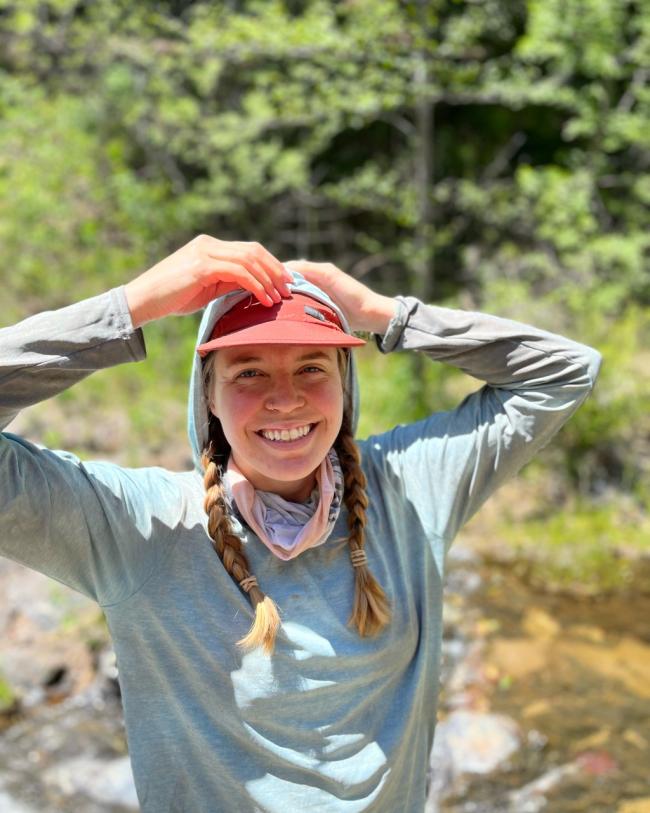
Shannon Healy
Master of Science, Environmental Science
Shannon Healy has been an exceptional master's student. It is highly unusual for a student to be competent across many components of graduate research, from rigorous fieldwork (such as carrying a heavy pack over crevassed glaciated terrain), to high level analytical chemistry (such as pigment analyses using the Quadrupole Time of Flight Mass Spectrometer in SciTech and cell counts using the Guava Flow Cytometer at the Shannon Point Marine Center), to operating a UAV and working with high resolution UAV and satellite imagery with complicated Python scripts in combination with ArcGIS. Shannon has contributed to all of it and in meaningful ways (such as helping to get these methods set up and running) and has excelled across these domains. Shannon has already published one paper, and we have a second UAV paper in review. Additionally, she was awarded a NW Climate Adaptation Science Center Fellowship for the 2020-2021 AY, (the Nooksack Tribe collaborated on this work), and she volunteered with the Mt. Baker Snow School in Winter 2020. This past year, 2021 – 2022, Shannon also participated in an EPA Pathways internship.
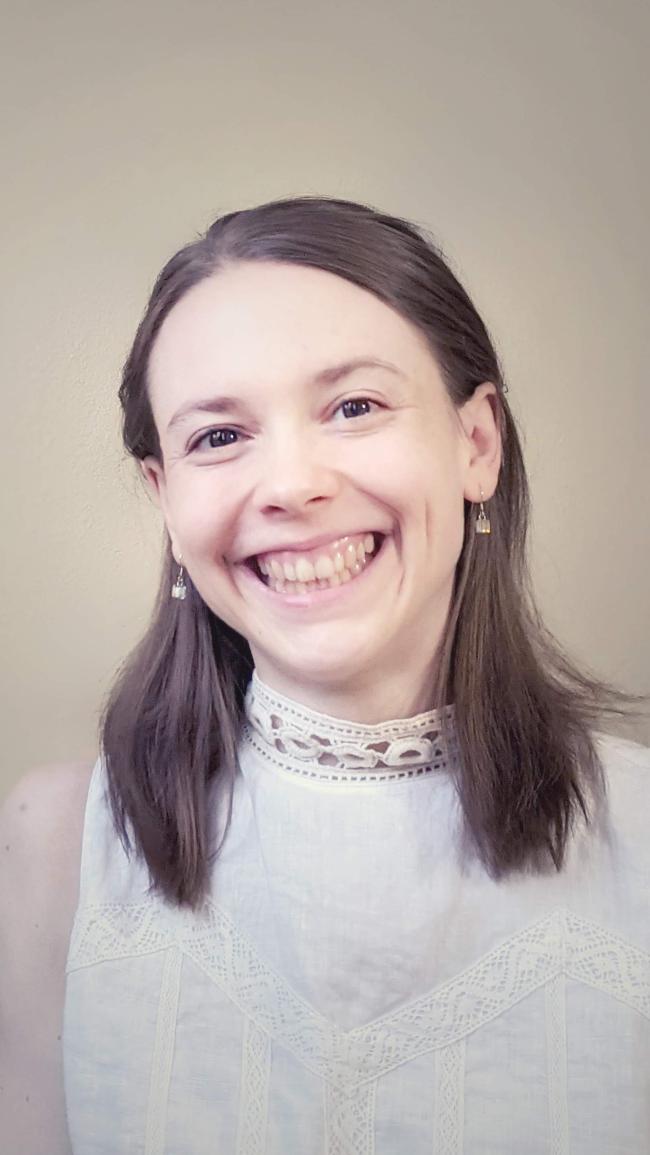
Pippa Hemsley
Master of Education, Environmental Education
Somatic Learning and Eco-Anxiety in Environmental Education Teacher Preparation
Pippa is working on an extremely important burgeoning area of eco-anxiety education. Her research focuses on university course work in Environmental Studies and the complexity of emotions that are raised when teaching about ecological crises. Her work is helping nuance the ways in which educators can use somatic learning as a way to navigate and provide solutions to these problems.
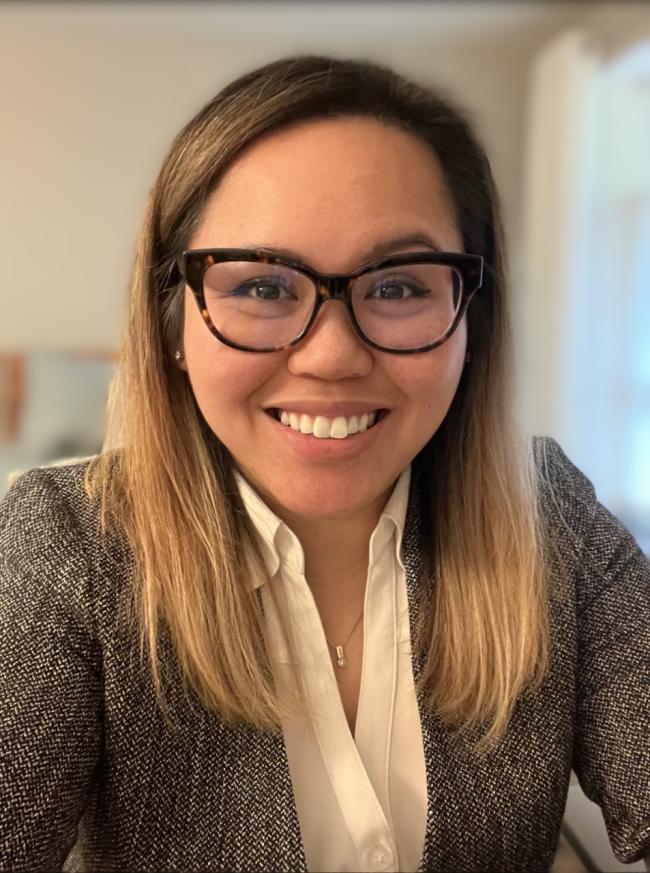
Joyce Kamran
Master of Business Administration
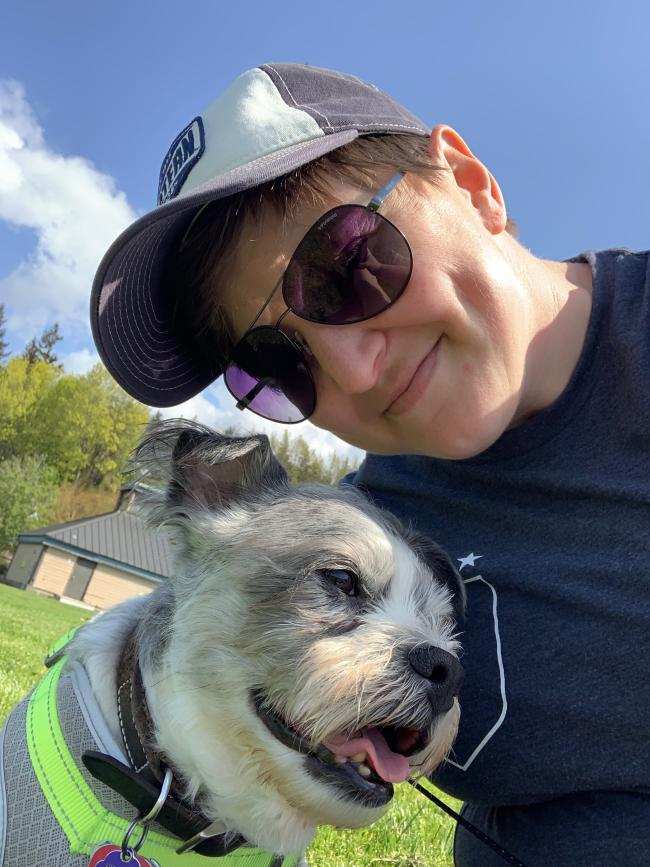
Kristina Kelehan
Master of Arts, History
A Love That Dare Not Speak: Empire’s Impact on Sodomy Persecutions in Victorian London
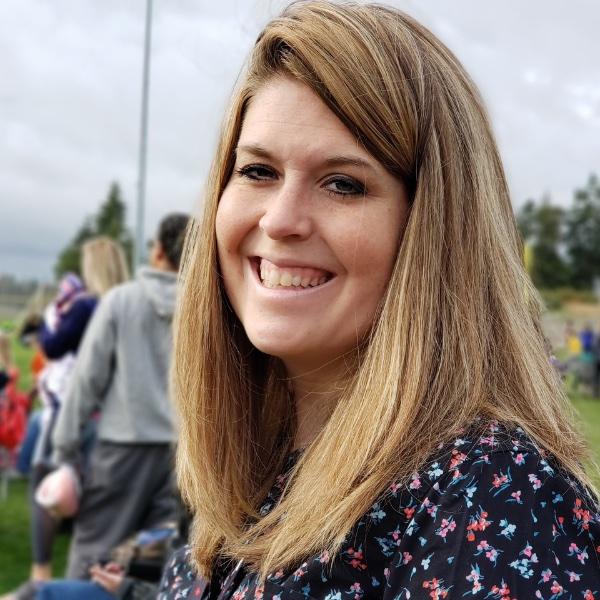
Rosana Lampano
Master of Education, Educational Administration / Educational Leadership and Inclusive Teaching
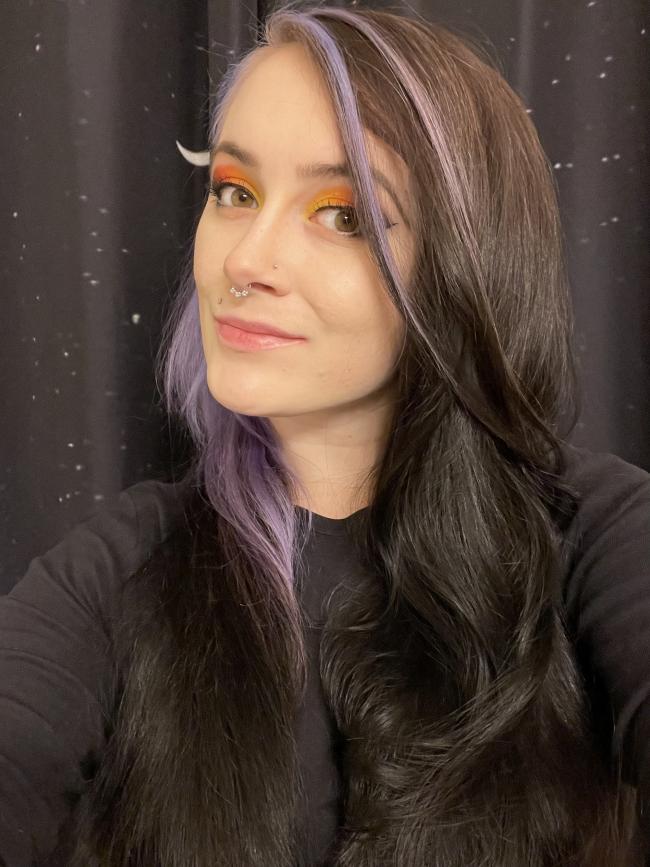
Else Lindsey
Master of Arts, Anthropology
Norwegian American Language Identity
As a lifelong language lover, Else finds joy in researching how languages develop, how languages come to be endangered, how to reverse such language shift, and the most effective ways to maintain vitality. Else is a large proponent of linguistic diversity as an essential piece of the human experience. As a Norwegian American herself, Else felt a pull to study the group of Norwegian heritage language learners in the Ballard neighborhood of Seattle, WA to discover the ideologies that operate within the community of practice and how the heritage language thrives. The study uncovered more than just the sought-after answers. This in-depth look at language identity and ideology in the Norwegian heritage language speech community sheds light on the factors that create discrepancies in how different heritage languages are treated in the US while also exploring the barriers that learners face such as perceived authenticity, which manifests as a self-made listening subject.
By developing her concept of the Critical Norwegian Listening Subject (CNLS), Else offers an insightful contribution to our understanding of the ways in which the dominant language ideology in the US, a framework which places monolingual Dominant American English at the apex and may view bilingualism as a deficit, might have an impact beyond the racialized stigmatization of languages associated with Black, Indigenous, and people of color (BIPOC). Norwegian, as an eminently white language, does not experience the sort of raciolinguistic discrimination visited upon speakers whose languages are associate with non-white speakers. Nevertheless, the dominant language ideology with its ideas about purity and fluency may create an obstacle for Norwegian heritage language learners.
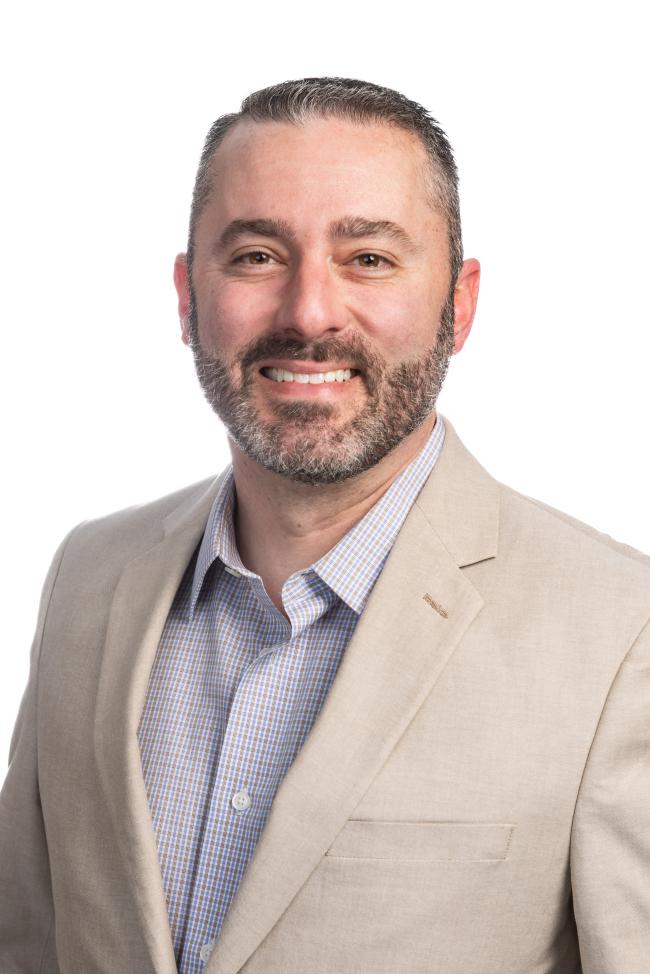
Kenneth Loveless
Master of Business Administration
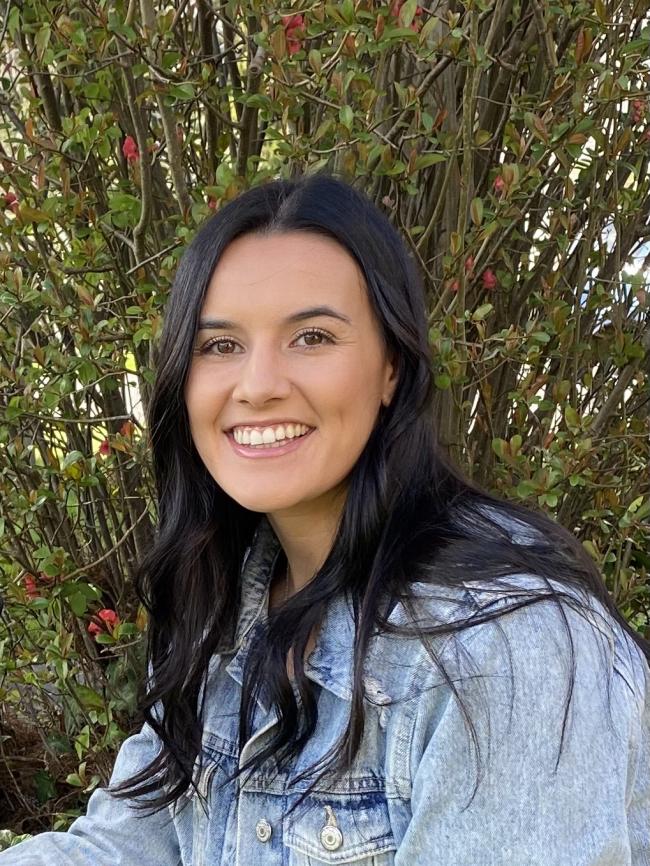
Justine Nuckols
Master of Science, Kinesiology - Exercise Science
Justine Nuckols entered the Kinesiology graduate program with an undergraduate degree from Eastern Washington University in Athletic Training. Previously, she played softball at Columbia Basin Community College while matriculating there. She received a graduate assistant award from the Athletics Department for the WWU athletic training room. She was primarily assigned to the varsity women’s volleyball team and assisted with both the varsity women’s softball and basketball teams.
Her initial thesis topic was on shoulder biomechanics in volleyball players: Effect of the Throwers 10 program as injury prevention in volleyball hitters. Most thesis studies in kinesiology require in-person data collection on human participants. However, COVID-19 impacted those activities. She was resilient and persevered. She completed totally different thesis research on the comparison of dietary intake in female college volleyball players before and during the COVID-19 pandemic while staying completely remote. Justine is submitting her study results to the Journal of Athletic Training and is currently working as an Assistant Athletic Trainer for varsity Track and Field at East Carolina University in Greenville, North Carolina.
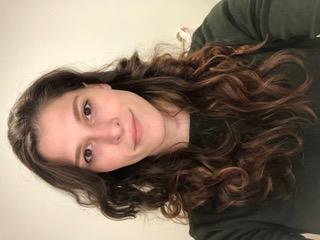
Katherine Picchiotti
Master of Arts, Anthropology
Optimistic Anthropology: Identity and Well-Being on Instagram
Katherine Picchiotti graduated from WWU in August 2021 with a Master of Arts in Anthropology after two years of research and the completion of her thesis - Optimistic Anthropology: Identity and Well-Being on Instagram. Picchiotti’s thesis investigates how students at WWU practice Well-Being through identity performance on Instagram, which brought findings later discussed during her opportunities with companies such as Amazon and Meta. Her focus on cultural and digital anthropology earned her an Outstanding Graduate award, where she attributes her success to her cohort and committee consisting of Dr. Judith Pine, Dr. Sean Bruna, and Dr. Joshua Fisher. Katherine now works as an Information Technology Sourcing Consultant in Chicago, Illinois and hopes to continue researching and learning about user experiences.
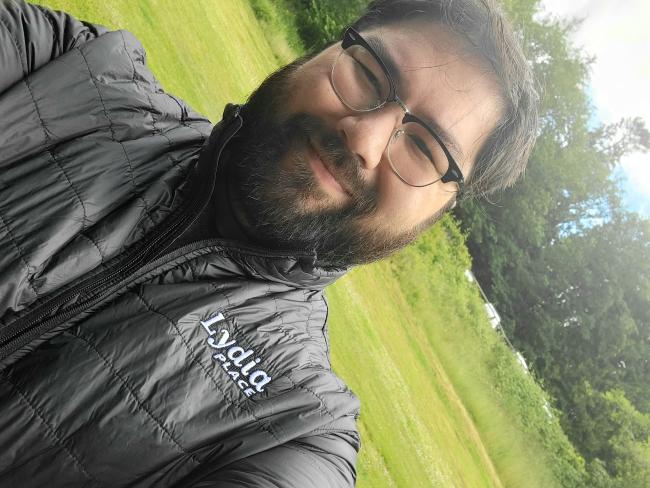
Tristan Quan
Master of Science, Psychology - Clinical Mental Health Counseling
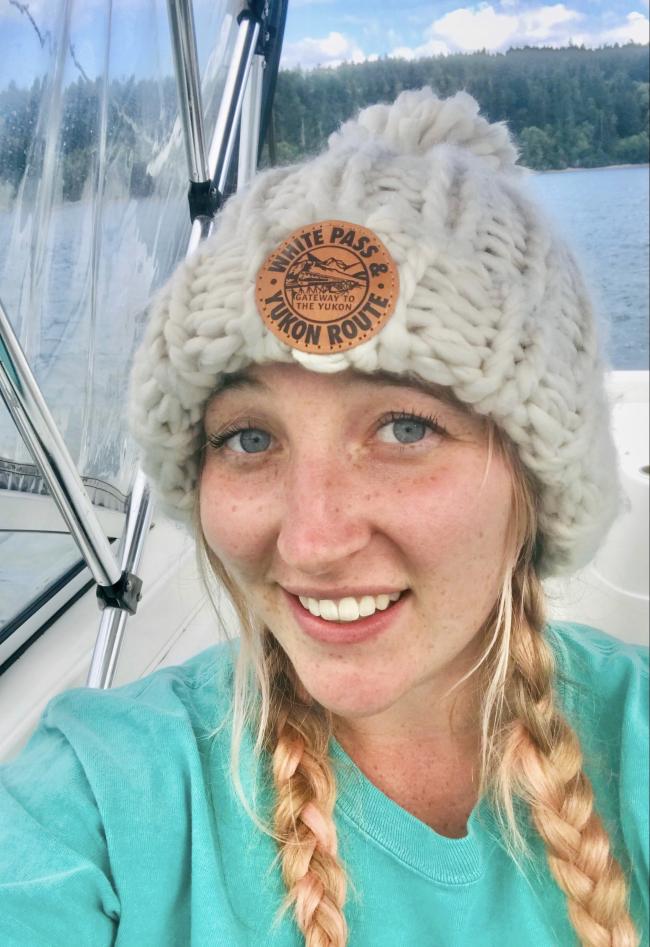
Erin Rosenkranz
Master of Science, Chemistry - Biochemistry
Engineering Segmentally Labeled Intrinsically Disordered Proteins
Erin works in pharmaceutical sciences at Seagen, formerly Seattle Genetics, a biotech pioneer in cancer care.
Rosenkranz works with antibody-drug conjugates (ADCs), which are antibodies, specific to particular tumor cells, that are combined with anti-cancer agents. These therapeutics are engineered to target cancer cells directly, allowing a person’s healthy cells, which might be damaged by whole-body therapies like chemo, to remain as healthy as possible during treatment. These ADCs have the potential to vastly improve the lives of people undergoing oncological treatment.
At Seagen, Rosenkranz tests the practical application-oriented side of cancer therapeutics. She works toward maintaining the stability and efficacy of these drugs to improve the practicalities of efficiency of production, dosing, administration, and distribution.
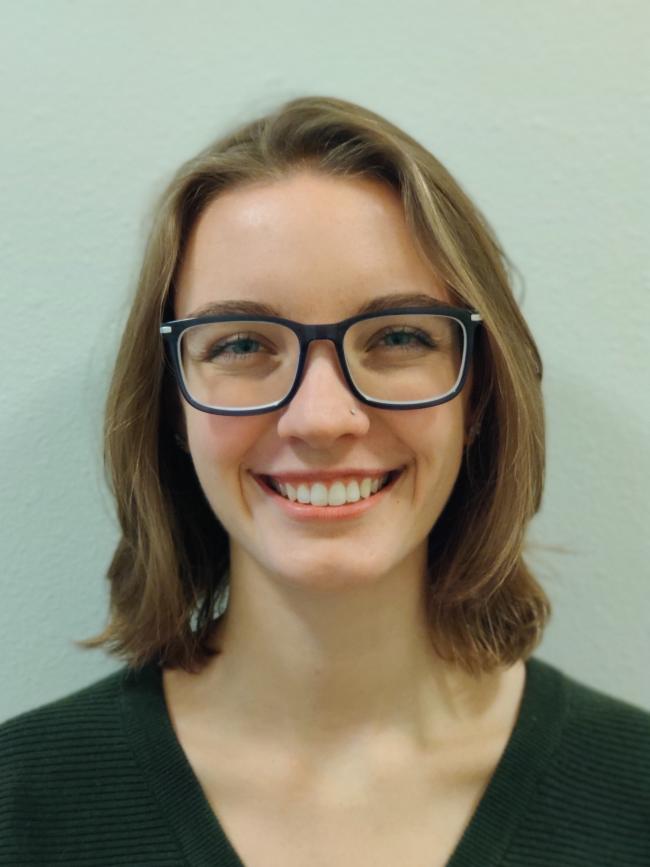
Allison Schwam
Master of Science, Experimental Psychology
Not My Privilege: How Construal Level Explains Reactions to Male Privilege
Allison Schwam’s graduate research examined the subtle ways that group-based privilege can manifest in advantaged group members (e.g., men, white people) and the psychological challenges that confronting such privilege poses. Her thesis examined how the mental construal of psychological distance may influence the (un)acceptability of male privilege awareness among men and the subsequent implications for gender-based attitudes and interactions. Allison’s research has been funded by the WWU Graduate School and the WWU Center for Cross-Cultural Research, and she has presented her research at several conferences of the Society for Personality and Social Psychology. Allison is currently a Senior Research Analyst for the market research firm aytm (ask your target market).
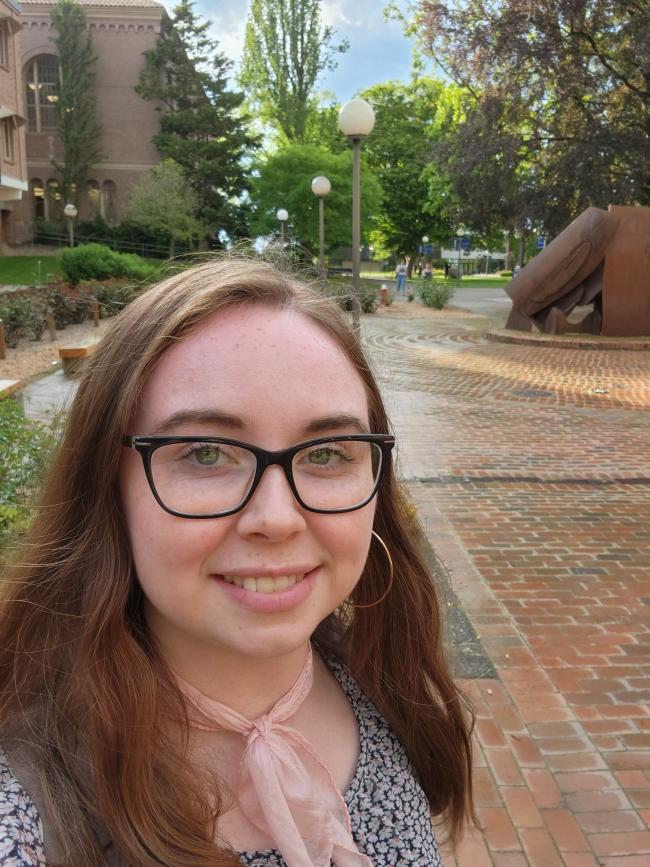
Caity Scott
Master of Fine Arts, Creative Writing
In every endeavor, Caity Scott has demonstrated that she is an exemplary educator, leader, writer, editor, scholar, coordinator and collaborator. With The Bellingham Review, Caity was Assistant Managing Editor. Suzanne Paola Antonetta, Editor-in-Chief at The Bellingham Review, writes:
“Caity Scott has been invaluable to me this year in her position as Assistant Managing Editor of the Bellingham Review. Caity has managed our book reviews, obtaining review copies and assigning and then editing book reviews written by our graduate student staff. She conducted an in-depth, smart, and feminist interview with writer Jessica Pierce that we published in the fall of 2022, and her editing, copy-editing, and editorial advice to me has been at the skill level of a person who had been in publishing for many years.”
As the English Graduate Representative on the Graduate Student Advocacy Council, Caity launched the “Buddy Program,” matching first-year and second-year students as a way to promote peer-mentoring, student belonging and student persistence. As the Events Coordinator for the English Graduate Association, Caity ran the EGA Reading Series, organizing, publicizing and hosting everything from visiting author events to panels to professional events to open mics to student readings. Recently, understanding that many of our English majors are first-generation college students, Caity coordinated a Grad School Application panel, where current MA and MFA students fielded questions about applying to graduate school, requesting letters of recommendations, and building an effective writing sample.
To her students, mentees, and peers, Caity is beloved as a competent, enthusiastic, and innovative educator. She has lectured as a Composition Instructor for ENG 101 since 2020, where her pedagogical interests include active learning, promoting inclusive classroom dynamics, universal design for learning, and strengths-based feedback. Uniquely, Caity has pursued a multitude of teaching developments, including working as a Graduate Studio Assistant at Western Washington University’s Hacherl Research and Writing Studio, and being an active participant in workshops offered by Western’s Center for Instructional Innovation and Assessment (CIIA) and the Teaching and Learning Cooperative (TLCo-op).
Alongside teaching and service, Caity is thriving as a publishing writer. During her time at Western, she has published more than a dozen pieces of fiction, poetry and multi-genre work in journals such as On the Run, Dark Recesses, and Sheepshead Review. Her forthcoming thesis is a full-length novel as well as a branching-narratives video game called Bitter Roots, and it interrogates the cruelties of repetitive low-wage labor.
Caleb Stromberg
Master of Science, Mathematics
Caleb completed his Bachelor of Science in Mathematics at Western with a 4.0 GPA in math classes and took eight graduate level math classes while an undergraduate. He is one of the strongest students to come through the undergraduate program. He entered the MS program and continued to excel in all his coursework. Caleb participated in the infamously difficult Putnam exam in 2020 and was awarded the department’s Richard Green Putnam award for his performance. He was awarded the 2021 Elias Bond Scholarship in recognition of being the strongest student entering the MS program and was awarded Richard Greene Scholarships in both 2021 and 2022, the latter for having the highest academic record of the graduating class. Throughout his time as a graduate student, Caleb taught introductory math classes, and his aptitude as a teacher was appreciated by the department and his students alike. For his master’s project, Caleb studied “Elementary Sieve Methods,” applying the theory to understand some properties of prime numbers. He was advised by Dr. Hans Parshall. Caleb’s oral exam performance was impeccable and stood out as one of the highlights of the exam season. It was an easy decision to identify Caleb as this year’s most outstanding graduate student. As a department, we look forward to hearing of Caleb’s achievements and successes in the coming years.
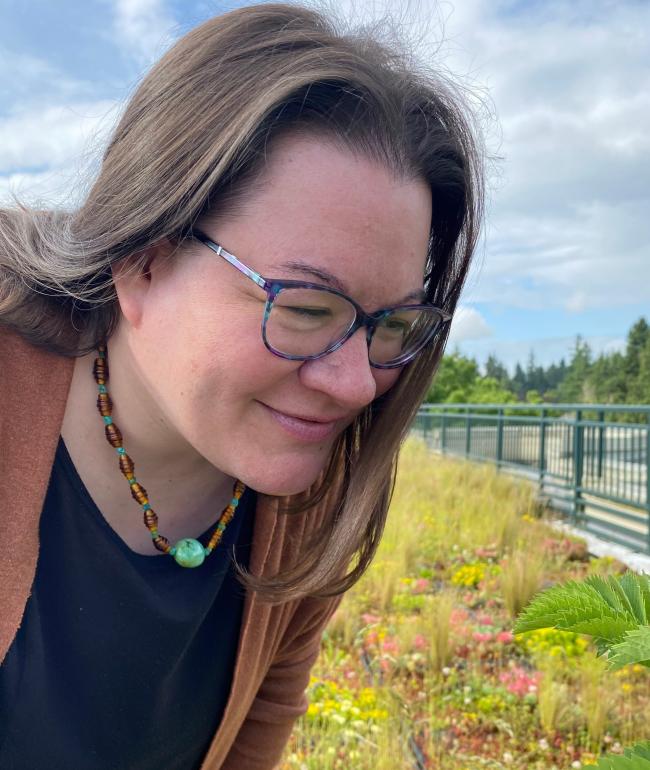
Melissa Swift
Master of Science, Computer Science
Melissa’s degree from Western is her second master’s degree, after the one she earned at Drexel University in 2010 studying library and information science. After some years in the working world, she returned to school with the goal of becoming an AI researcher. After completing the undergraduate computer science prerequisites, she began graduate coursework and research working in computer vision. In the summer of 2020, Melissa won funding through the Washington NASA Space Grant, which jump started her computer vision research project related to visualizing multiple timescales in long fixed-viewpoint videos. Serving both as the primary author and mentor to several undergraduate research students, her diligent work on this project over the following couple of years culminated in a paper that has been conditionally accepted to the 2022 IEEE VIS conference, a top-tier venue for research in visualization.
In addition to her strong academics, Melissa was also an engaged and active citizen in the Computer Science Department, through her many quarters as a TA, her involvement with the Association for Gender Inclusion in Computing, and her leadership in developing the Computer Science Mentoring Program. She was recognized by the CS department with their Citizenship Award (2020/2021).
Melissa spent the summer of 2021 interning at Pacific Northwest National Laboratory (PNNL), where she developed a novel semi-self-supervised few-shot method for image classification in overhead imagery. Since graduation, she has been working full-time at PNNL as a data scientist, conducting research on a variety of interesting computer vision projects. She is also continuing to be a mentor by supervising an undergraduate intern this summer at PNNL.
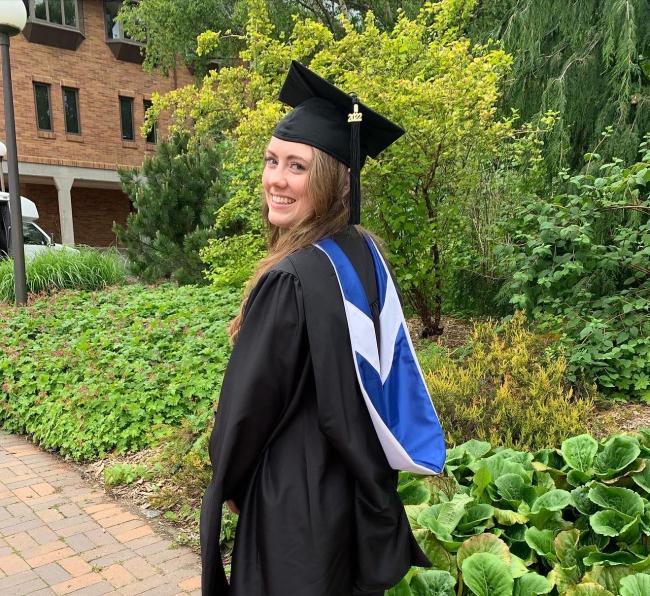
Sydne Tursky
Master of Arts, Environmental Studies
Sydne has been curious, intellectually engaged, insightful, and proactive. Her research topic – climate policy communication strategies with Evangelical Christians – is well off our department’s beaten path and a challenging but highly relevant topic. She has approached the issue with good methodological rigor. In researching the views and beliefs of this group, she has approached participants with respect and genuine care. Her thesis is pointing to how we, as an environmental sector, can move to not just instrumentally determining how to manage their perceived resistance, but to understanding a group that is often written off as anti-environment, climate-deniers. What she is finding is nuanced and instructive for all of us interested in building broad coalitions to support climate policy. Her work as a graduate TA and leader in ENVS 303 and with LEAD has also been outstanding.
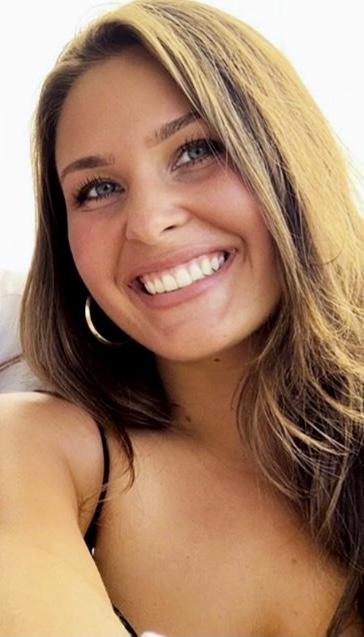
Nicolette Tuttle
Master of Arts, Anthropology
Embodied Feminism: An Ethnographic Study of Abortion Access and Hopeful Praxis
Nicolette Tuttle’s timely, patient, diligent, and dedicated work in the Anthropology MA program at Western Washington University represents the best of feminist and engaged anthropology. Her thesis, Embodied Feminism: An Ethnographic Study of Abortion Access and Hopeful Praxis, seeks to understand the political terrains in which reproductive rights activists in Los Angeles operate, something that she comes to understand, in part, by accompanying patients to their needed care. Her work is built upon a foundation of ethical research that prioritizes transparency and mutuality as the only avenue for properly conducting research on critical social issues.
At the same time, Ms. Tuttle admirably demonstrates something every student of the social sciences should understand: that research, particularly ethnographic research, is also a process of self-transformation. One does not merely do fieldwork, collect data, and write it all up in order to receive a degree. Ms. Tuttle exemplifies engaged research that matters because she has always brought her whole self to that work, connecting her political, social, ethical, and emotional self with every other part. The implications for this approach to research are exemplified in her ongoing friendships with her interlocutors, who see Ms. Tuttle, in turn, as friend, colleague, advocate, and advisor.
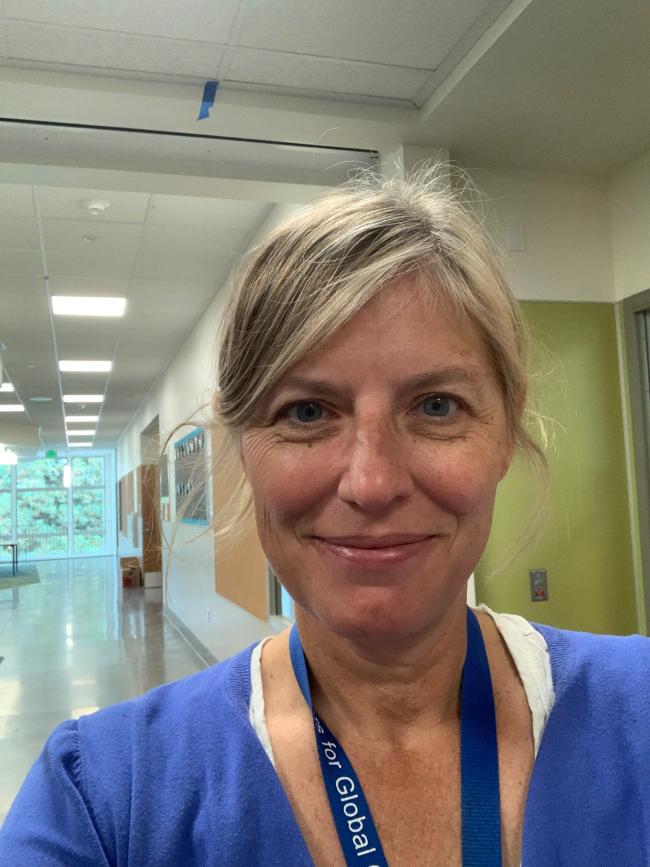
Jennifer Wilkinson
Master of Education, Language and Literacy
Jennifer Wilkinson is a 2nd grade teacher with over 18 years of teaching experience in grades K-5. At heart, Jennifer is an early adopter of technology. As she completed her Media and Digital Literacy certificate, Jennifer demonstrated multiple ways to engage students with authentic multimodal projects for writers. During remote learning, she realized the need to teach students differently. As she says, “if they aren’t in the room, we can’t teach them.” So, to get kids to “show up,” she created two remote clubs: a Creators’ Club, which focused on coding, coloring, and drawing tools, and an Explorers’ Club that allowed students to travel the world with Google Maps, Google Earth and virtual field trips. This remote club then transformed into an in-person after-school technology club. In this club, Jennifer collaborated with university faculty to have WWU pre-service teachers mentor 2nd, 3rd, and 4th graders in creating and coding with tools like Scratch, Makey Makeys, Ozobots, and Minecraft.
Jennifer is a true innovator and her students create to learn in ways that are authentic and motivating. Jennifer also presented at the Northwest Council for Computing in Education Conferences and published in Edutopia.